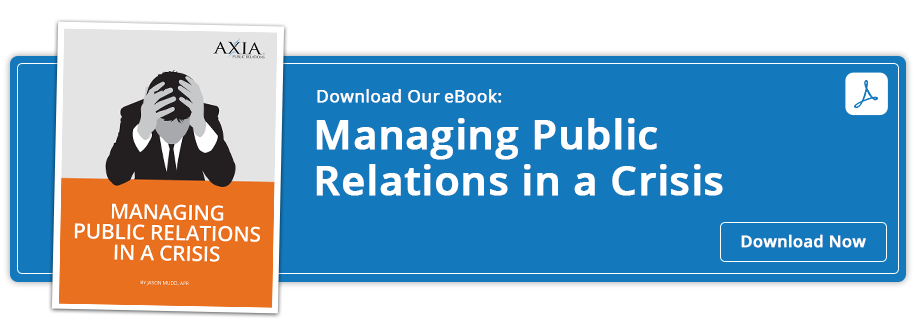 How to use a PR nightmare to help you improve your bottom line
How to use a PR nightmare to help you improve your bottom line
The country’s current social climate is an opportunity for better public relations between PR firms and their clients. One of the best examples arose recently at the University of Missouri, and smart companies are paying attention and making changes.
A quick overview of the situation:
-
Brittle lines between races have long been in place, affecting staff, teachers and students. After an incident about 100 miles away, a peaceful rally took place on campus in an attempt to heighten awareness of local race issues playing out nationwide.
-
Certain egregious acts targeting the vocal segment (such as the president making inappropriate comments and allegedly hitting a student with his vehicle) cropped up more regularly, yet the school’s administration still did not seem ready to discuss change.
-
Students felt ignored. One student started a hunger strike to bring attention to concerns and some football players decided not to dress for a football game. When the black students stood up, white students and athletic staff did, too. Two high-level administrators resigned.
What it means for your company
Consumers are not only those who buy your services, but also those who create and sell your services. Your internal public relations have a bearing on how your external customers perceive your product. Often, businesses forget their internal consumers, even though they impact the bottom line both directly and indirectly. It is imperative that you focus internally as well as externally.
Applications from the educational setting should not remain purely “academic.” Mizzou’s racial episodes evolved in the real world, providing great lessons from which your company can improve its relationships and bottom line. These outcomes apply to all businesses, as any crisis management situation can go sour.
When complex problems just keep getting worse:
-
Word choice: When handling crises, there is a heightened need to use the right phrasing to address the situation. The university’s personnel began conveying concerns about the image problem rather than a willingness to address the real problems and taking steps to do so. Prompt action is key.
-
Ignoring problems: Businesses cannot ignore problems, as they will inevitably boil over into the media. Whether they’re concerns about safety, price gouging or other problems, you must give the issues credence and attention before you are forced into a very public corner to do so.
-
Selective timing: There is a rhythm and a pulse to your business as well as to your industry, and just because a meeting at the end of the day on the Friday before a company-wide week’s vacation is good for your staff, it doesn’t mean it’s good for stakeholders. At Mizzou, semester breaks for staff and students had started and the meeting was called after most had already departed. What the administration viewed as convenient for itself, others saw as sneaky and underhanded. Internal myopic focus contributes to poor timing. Don’t meet the needs of the management while ignoring those of your main stakeholders.
What you can do to fix it:
-
Listen: You need to foster and encourage a safe environment for uncomfortable discussions. Support the discussion of varied points of view.
-
Prepare: Keep a pulse on what your community needs and offer it before someone screams that it’s mandatory.
-
Make changes: When you hear things that are disturbing to any degree, be ready to implement changes geared toward resolving the issues.
You need strong leaders who are willing to be accountable and responsible for their actions. When you are responsive to complaints, you improve your product. Your staff and current customers will give you the best PR that you cannot buy: word-of-mouth support.
At Axia Public Relations, we understand that leadership is about making the right decisions at the right time. You must enlist the help you need to manage your communications so that, when the time comes for a decision, there will be little hesitation to do what’s necessary in moving forward. Knowing who you are as a company and who your stakeholders are as people is a great first step to avoiding a PR crisis created by internal missteps. Let Axia help you by doing what we do best so you can focus on your best. Download your copy of our crisis management e-book to learn more.

 Heather M. Hilliard is an expert in crisis management communications. With two master’s degrees and her international Certified Emergency Manager credential, she has worked through disasters as well as “normal business” for large- and small-scale events in a variety of industries. She is an adjunct professor at Tulane University and currently focuses on strategic communications and improvements for clients.
Heather M. Hilliard is an expert in crisis management communications. With two master’s degrees and her international Certified Emergency Manager credential, she has worked through disasters as well as “normal business” for large- and small-scale events in a variety of industries. She is an adjunct professor at Tulane University and currently focuses on strategic communications and improvements for clients.
Featured image credit: Creative Commons
Topics: public relations, crisis communications, shared media


Comment on This Article